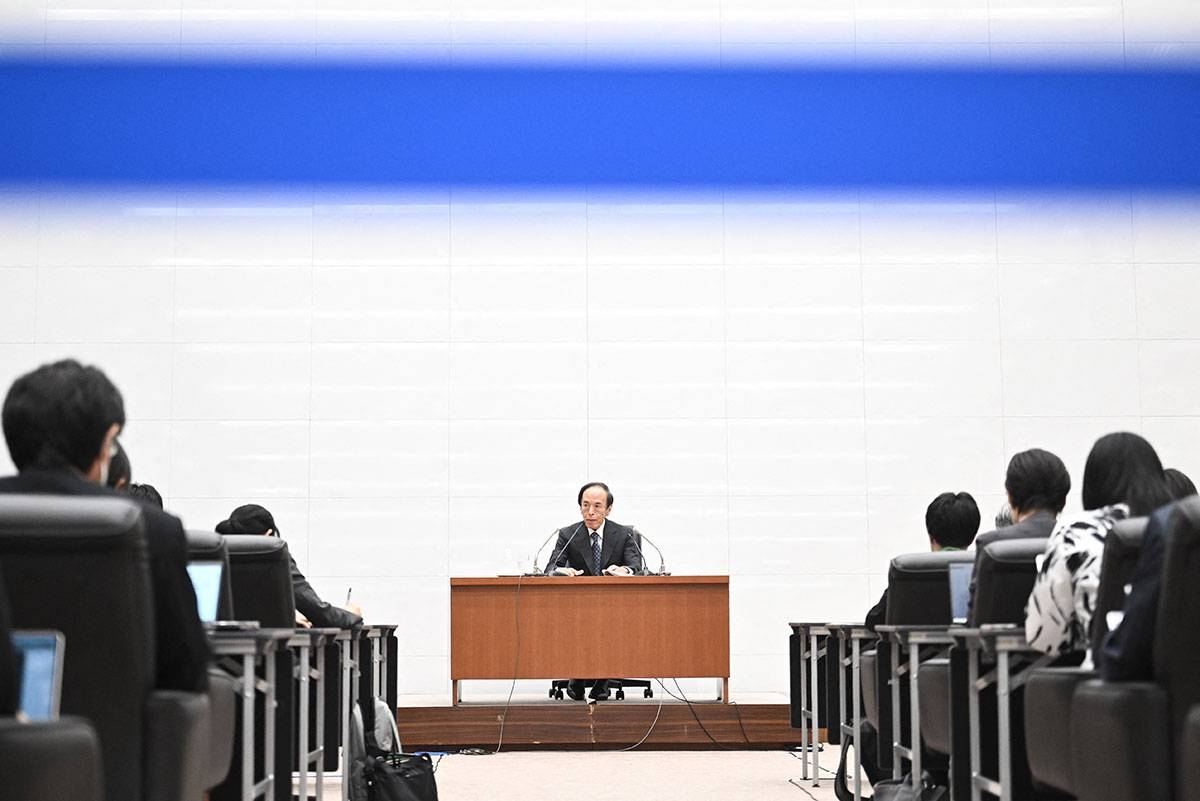TOKYO: The Bank of Japan (BoJ) said on Friday it would maintain its long-standing, ultra-loose monetary policy as it looks to boost economic growth.
The central bank has gone against the grain as its global peers hike interest rates to tackle inflation, pushing down the value of the yen against the dollar.
 UNCHANGED Bank of Japan Governor Kazuo Ueda takes part in a press conference in Tokyo on Friday, June 16, 2023. The BoJ announced that it would stick with its ultra-loose monetary policy to boost economic growth. AFP PHOTO
UNCHANGED Bank of Japan Governor Kazuo Ueda takes part in a press conference in Tokyo on Friday, June 16, 2023. The BoJ announced that it would stick with its ultra-loose monetary policy to boost economic growth. AFP PHOTO
Officials had been widely expected to keep policies unchanged after the second two-day meeting chaired by new governor Kazuo Ueda.
It left its negative interest rate in place and did not adjust the band in which rates for 10-year government bonds fluctuate, a scheme known as yield curve control.
The announcement prompted the Japanese currency to sink to around 140.73 yen per dollar, from around 140.20 yen earlier.
The US Federal Reserve on Wednesday decided against lifting interest rates, as expected, but signaled plans for additional increases.
The euro also got a boost after the European Central Bank raised interest rates to a 22-year high.
Katsutoshi Inadome, senior strategist at SuMi TRUST, said ahead of Friday’s decision there was no reason to expect Ueda would do anything other than continue with the ultra-easy monetary policies in the short term.
“We believe the BoJ will maintain its current accommodative monetary policy, as its inflation forecast for 2024 is still above its 2-percent target,” he wrote in a commentary.
“Given uncertainty about price increases next year, the BoJ will stay vigilant and avoid making hasty changes to the policy in the foreseeable future.”
In April, the bank announced a broad review of its “nontraditional” attempts to banish the deflation that has plagued Japan since the 1990s, following the bubble era.
Moving away from monetary easing will be a tricky balancing act for Ueda, who faces pressure to normalize policy while minimizing any shock to the economy.
In the January-March quarter, Japan’s economy expanded 0.7 percent, up from an initial estimate of 0.4 percent, government data showed earlier this month.
A recovery in inbound tourism and household spending after pandemic border restrictions were lifted helped the world’s third-largest economy, analysts said at the time.
*****
Credit belongs to : www.manilatimes.net
 Atin Ito First Filipino Community Newspaper in Ontario
Atin Ito First Filipino Community Newspaper in Ontario






